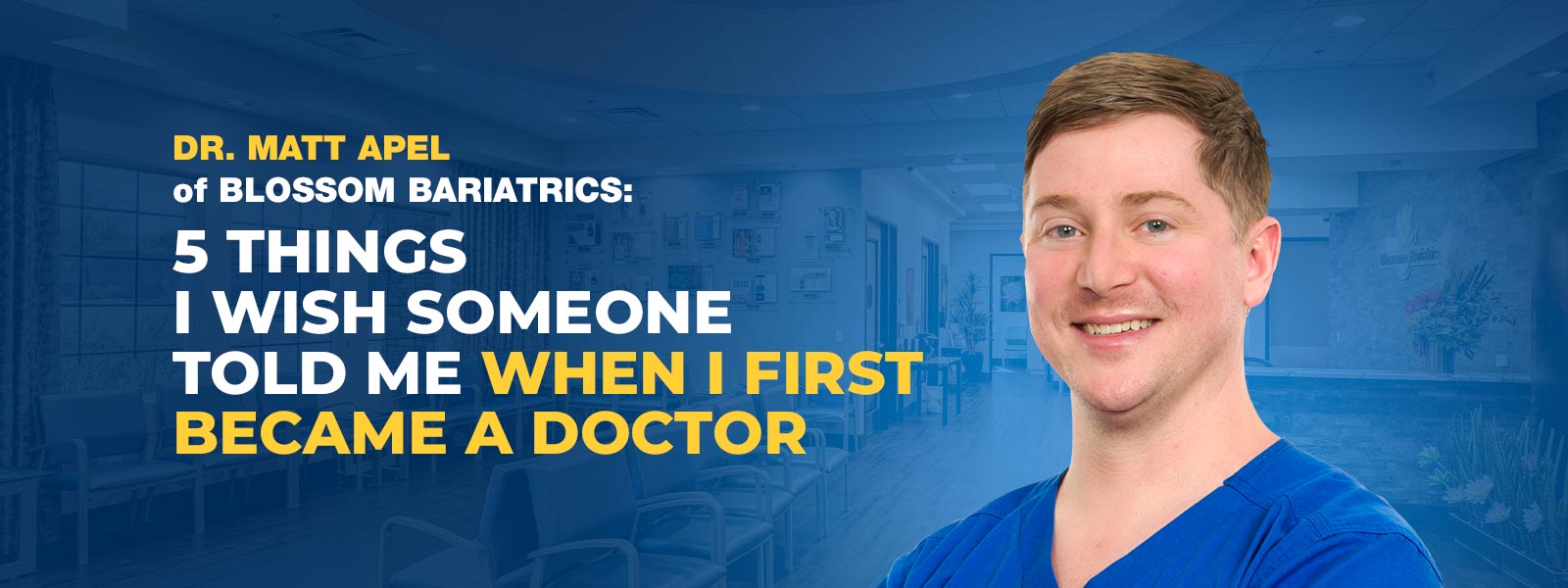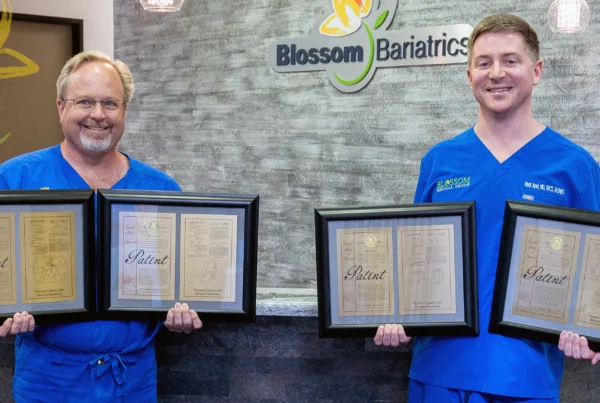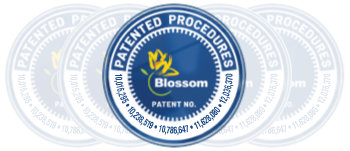As part of my series about healthcare leaders, I had the pleasure of interviewing Dr. Matt Apel.
Dr. Matt Apel is one of the nation’s leading bariatric surgeons and he works out of Blossom Bariatrics in Las Vegas, Nevada. Dr. Apel’s work has helped Blossom Bariatrics remove many of the traditional stumbling blocks that tend to prevent people from having life-altering surgeries. While working with Dr. Apel, patients can transition from consultation, to surgery, to recovery, to being back home in a five-day period of time.
Thank you so much for joining us in this interview series! What is your “backstory”?
Since sixth grade, I knew I wanted to be a surgeon. It was just a question of, ‘What kind of surgeon do I want to be?’ So, after doing general surgery residency, you get a little exposure to a bit of everything to help get you trained to be a general surgeon. But it also exposes you to what kind of surgery you like the most and what kind of surgery you want to do.
As time went on, I found that I wanted to be in a happy environment where the patients are happy to be there. I want to be in an environment where things aren’t super stressful, but are still relatively straightforward. And again, I want to be in their environment where we’re not only helping the person, but you’re also helping the family and you’re helping the communities. There’s no other surgical subspecialties that check off all those boxes like that than bariatrics. My patients are happy to see me and they are happy and excited about getting their surgeries so they can start losing the weight.
So, it was a natural progression into this field for me. As far as what I wanted in life, I wanted to help patients who were excited to be there. I’m excited to meet them, too, because that means they’re having surgery two days from our first summit.
Having someone be excited about the procedure, that’s rare when it comes to surgery.
Can you share the interesting story that happened to you since you started your career?
For me, I think the thing that stands out most since I’ve become a surgeon, is not necessarily one story. It’s just a recurring theme that keeps happening, which is as I’ve done this longer and longer, obviously, I’ve had more patients, and we’ve had more success stories.
What happens to me frequently, when I’m going out to eat with my family, or I’ll be at the mall or doing something with the wife and kids, and some seemingly random person will come up to me and they know who I am. You know, `How’s it going? And blah, blah,’ and they’ll fail to realize that I have in my mind, a mental picture of them at 400 pounds, and they’re now coming up to me at 180 pounds, and I have no idea who this person is.
Frequently, a patient recognizes me because I haven’t changed, but they’ve changed considerably. I’m really good at recognizing a face, but if you if you start off with a face at 400 pounds, and you’ve lost a significant amount of weight after one of our surgeries, their faces change a lot. They have to remind me who they are because I don’t always recognize them right away.
As I’m getting more and more advanced in my career there are thousands of happy patients and I’m reminded of it when they approach me and look completely different. So, it’s just not uncommon for that to happen and it’s totally gratifying that I no longer recognize them.
Can you share a story about the funniest mistake you made when you were first starting? Can you tell us what lesson you learned from that?
Well, the funniest mistake was actually when I was a general surgery resident and we had put in this subcutaneous pain pump, which is a temporary pain pump that releases medication to help with the local anesthetic.
We put it in, but of course you don’t learn about how to be an actual surgeon until you’re in your residency and you don’t learn about that stuff in med school.
So, I had no idea on how to hook it up. I was on the floor and they had called me to hook it up. The rules of the hospital were that the nurses can’t do it and it has to be a doctor.
So, I go up there and I’m like, ‘I have no idea how this is done.’ The nurse knew how to do it, but she couldn’t do it, so she basically had to bring me through it step by step while making sure to not get herself into trouble.
Interestingly enough, that nurse (Christine) ended up becoming my wife! Right away, it taught me that it’s not always the doctor that knows everything and it’s not necessary med school that teaches you how to become a doctor. It’s your residency and learning from the others around you, even if that’s another doctor that can help you grow.
Are you working on any new or exciting projects now?
We’re not only further enhancing the SafeSleeve technique for bariatric surgery, but we’re also working on ways to both mitigate post-operative reflux, as well as the recurrence of post-operative hiatal hernias.
We’re certainly a very busy private practice, but because of the large number of patients that we do, the next step in my career and in building the business is contributing more and more to publications and research. That way we can share our secret-sauce recipes with others so that we can further advance bariatric surgeries.
On top of that, not only are we going to start publishing more, but we’re also going to start working with residents on our procedures. As we train them, we can prepare the younger generation to be state-of-the-art surgeons. Then, when they come out of their training, they can be better surgeons than I was when I came out of my training. They’ll have the knowledge that has taken us many years to acquire, and we can impart it to them at an earlier stage in their careers than they would have otherwise had. So, yeah, that’s a great part of what we’re doing.
None of us are able to achieve success without some help along the way. Is there a particular person who you are grateful towards who helped get you to where you are? Can you share a story about that?
Well, that would have to be my wife, Christine. In order for a doctor to be a well-rounded, happy and successful surgeon, it requires a great deal of sacrifice from loved ones. She has certainly taken that part in stride, no problems at all, and I’m able to focus so much on my work and focus on helping others. That’s because the bulk of the other stuff in my life is managed by her. I mean, it’s awesome. And it’s real hard what she does. If I had to take care of everything and work and come home and run a household, I would be stretched too thin.
The fact that matter is, she just gets it. With her having come from a nursing position in the hospital, she understands the life of a health-care provider. So, she’s really helped pick up the flag and take care of basically everything other than what I do at work. She’s the project manager of our family, she’s the go-to when it comes to anything outside of work and she’s the person that I lean on the most so that I can provide the best patient care. If not for her I’d drive myself insane because of being overburdened.
Is there a particular book that made an impact on you? Can you share a story?
I’ve got be honest … when I have some free time, I tend to read surgical literature and it’s been a hot minute since I’ve had the pleasure of the leisurely read, especially since I’m still in the in the midst of my budding career.
I do think it’s important to stay on top of the most recent surgical publications, and make sure that we’re doing everything to the newest and highest standards possible. So, whatever I’m doing at the moment, I’m making sure that the way that we implement certain practices is state of the art, both in terms of the nation and worldwide as well.
How have you used your success to bring goodness to the world?
With what we’re doing, the hope is that we’re helping more than just the individual who is having the bariatric procedure. When I help a father who’s got a wife and two young kids, then as he’s losing weight and as he’s becoming healthier and more functional in our society, and that’s also helping the family. As I’m helping family, that’s helping the community at large. So luckily, it’s kind of a domino effect of where we help one person, then they help the next and the next and the next person. So, doing the surgeries that we do, it’s helping the individual, the family group, the city and the nation and so forth. So that’s what I’m hoping for — to help as many people as possible.
Can you please give us your favorite “Life Lesson Quote”? Can you share a story about how that was relevant to you in your own life?
The most important and simplest thing to live by is this quote: Be humble!
As a surgeon, it’s easy to easy to let one’s confidence start to influence one’s perspective and one’s approach to other individuals. But I think it’s incredibly important to remain humble and not think of yourself as better than others. It’s important both to stay grounded in terms of realizing that there’s always room for improvement as a surgeon, but also with your interactions with patients and families. Your personal interactions are always enhanced by maintaining a position of being humble.
Can you share your top three “lifestyle tweaks” that will help people feel great?
1. Food is the best medicine.
2. Exercise, starting at an early age and continuing it for as long as your body allows, is very important.
3. Drink more water. Always, drink more water.
What are your “5 Things I Wish Someone Told Me Before I Started” and why. (Please share a story or example for each.)
1. I would have to say you can’t help everyone, despite your best intentions, your best efforts and the best resources available to you.
It was important for me to understand this, and it’s been a lesson that I’ve learned as my career has gone on: As a surgeon and a doctor, when you see a problem and you want to fix it, sometimes there are certain problems that are so advanced that they can’t be fixed. Rather than beat yourself up over it and bring it home and have it affect your home life, you have to understand that you can’t help everyone. You’ve got to be able to say, ‘Hey, there are some things I can’t fix and some things can’t be changed.’ Sure, you do all you can do, but you can’t always help everyone.
2. Doctors are the captain of the team, but providing good, sound healthcare is a team sport. Without a strong team around the doctor, the patient’s outcomes aren’t as good as they could be. Even if you’ve got the best surgeon possible, if there’s not a strong supporting team around them, the patient’s outcomes are going to be compromised.
3. Educating those around you is of paramount importance to making your own life easier for you. A lot of times in the past, people would ask me questions, I’d give them an answer and then they’d be asking the same questions over and over.
Once I started educating them about why I answered the way I answered, I stopped getting the questions because they understood it and they didn’t have to ask again.
4. Focus on today. While planning for the future is certainly important, living in the now is more important.
5. Being a great surgeon isn’t as important as trying to be a great person. That one is pretty self explanatory.
If you could start a movement that would bring the most amount of wellness to the most amount of people, what would that be?
I would have to say improving access to higher quality nutrition at a price point competitive to what we currently consider poor-quality and cheap nutrition.
Basically, the problem here is, there’s too much money at stake with the status quo, and disrupting a multibillion dollar and multi-trillion dollar fast-food industry is certainly going to be difficult.
Here’s the thing that I have observed: While we limit access to unhealthy habits — like smoking, drinking and drugs — the bad habit that’s affecting more people than all of those things combined is poor nutrition and poor eating habits. Still, people have ready access to make those poor choices without any limitations whatsoever.
Yes, smoking is more deleterious to one’s health, both on acute and long-term basis, but there are very few things other than being overweight and being obese, that are gonna affect your health and your longevity in the long run. And yet, we still allow rampant access to food that isn’t even really considered food, in my opinion. It’s something to put in your mouth and it tastes good, but it has zero nutritional value whatsoever. We can’t just keep allowing that.
We are very blessed that some of the biggest names in Business, VC funding, Sports, and Entertainment read this column. Is there a person in the world, or in the US whom you would love to have a private breakfast or lunch with, and why? He or she might just see this if we tag them 🙂
That’s a tough one. I would have to say, Bill Gates would be good, Warren Buffet would be good and Jeff Bezos would be another good one. It would have to be someone who has the connections and the means to make a meaningful impact on society.
Again, it’s hard to start a grassroots nutritional movement that is going to gain traction and actually take effect and help a vast number of people, for better or for worse, and you would need some titans of industry to be able to make some changes. Heck, even being a billionaire isn’t enough to affect a trillion-dollar industry such as the production of food in America and the production of pharmaceuticals in America.
All the odds are stacked against us in terms of preventing obesity and so many want to continue the status quo, which unfortunately is continuing to promote obesity.
Instead of preventing obesity, we want to treat it. The deck is stacked against us right now. If you take a look at the people that are running fast-food chains and the consumable industry in terms of junk food, the vast majority of them would agree that, ‘Hey, eating this stuff regularly isn’t in the best interest of our country.’ But do they still produce it and market it to the masses? Of course they do, because at the end of day it’s easier to know what makes sense from a dollars standpoint than it is to know what makes sense from a moral standpoint.
It’s a lot harder to act on that because, of course, of the financial aspect of it.
What is the best way our readers can follow you online?
Anyone interested in bariatric surgery can learn more about the process and the steps involved at our website, blossombariatrics.com. You can also view our thousands of success stories and the many advancements that we continue to make on our Facebook, YouTube, Twitter, Instagram and Pinterest pages.
Thank you so much for these wonderful insights!




